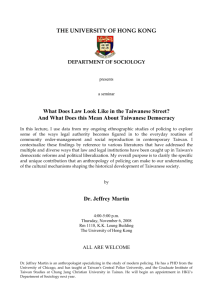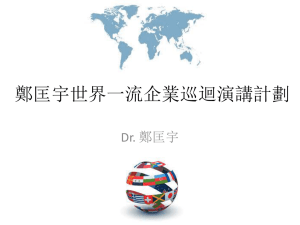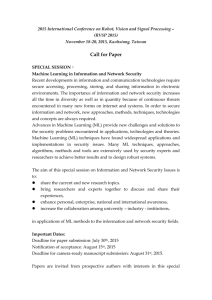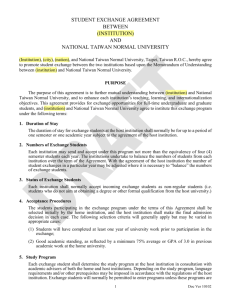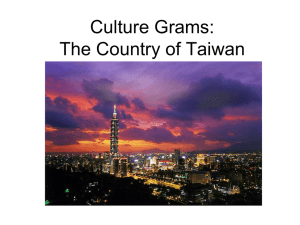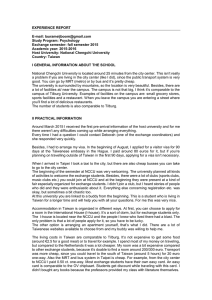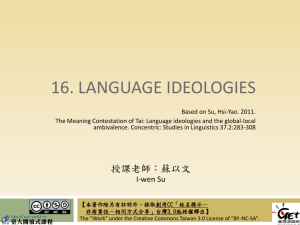Course Description - National Chengchi University
advertisement
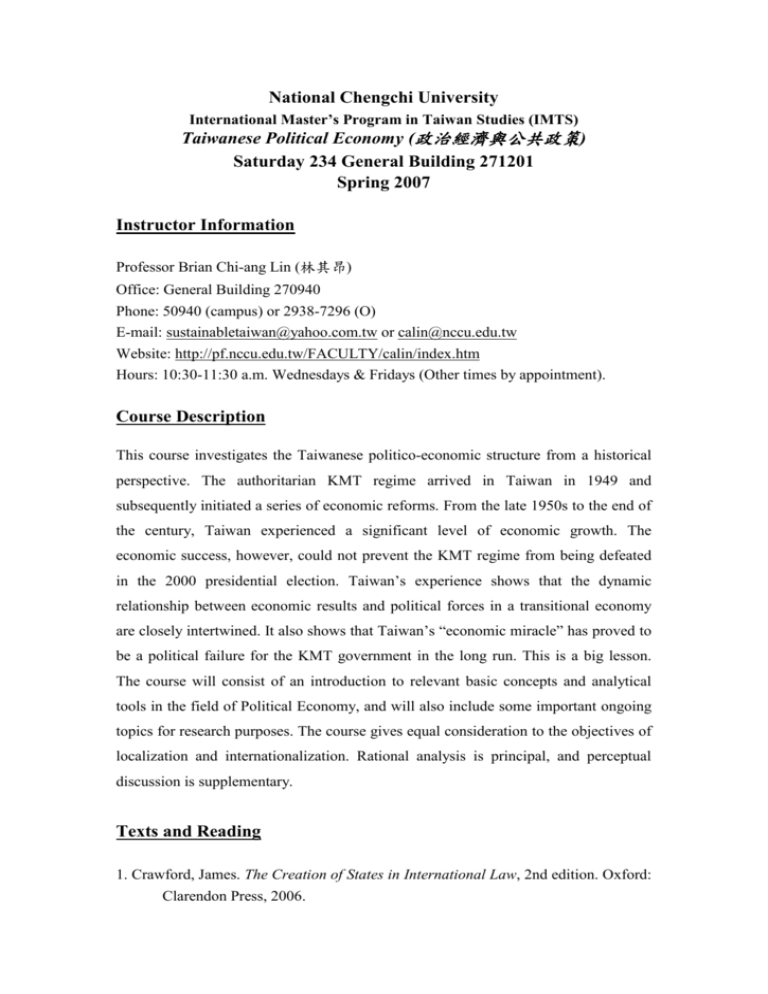
National Chengchi University International Master’s Program in Taiwan Studies (IMTS) Taiwanese Political Economy (政治經濟與公共政策) Saturday 234 General Building 271201 Spring 2007 Instructor Information Professor Brian Chi-ang Lin (林其昂) Office: General Building 270940 Phone: 50940 (campus) or 2938-7296 (O) E-mail: sustainabletaiwan@yahoo.com.tw or calin@nccu.edu.tw Website: http://pf.nccu.edu.tw/FACULTY/calin/index.htm Hours: 10:30-11:30 a.m. Wednesdays & Fridays (Other times by appointment). Course Description This course investigates the Taiwanese politico-economic structure from a historical perspective. The authoritarian KMT regime arrived in Taiwan in 1949 and subsequently initiated a series of economic reforms. From the late 1950s to the end of the century, Taiwan experienced a significant level of economic growth. The economic success, however, could not prevent the KMT regime from being defeated in the 2000 presidential election. Taiwan’s experience shows that the dynamic relationship between economic results and political forces in a transitional economy are closely intertwined. It also shows that Taiwan’s “economic miracle” has proved to be a political failure for the KMT government in the long run. This is a big lesson. The course will consist of an introduction to relevant basic concepts and analytical tools in the field of Political Economy, and will also include some important ongoing topics for research purposes. The course gives equal consideration to the objectives of localization and internationalization. Rational analysis is principal, and perceptual discussion is supplementary. Texts and Reading 1. Crawford, James. The Creation of States in International Law, 2nd edition. Oxford: Clarendon Press, 2006. 2 2. Ho, Szu-yin and I-chou Liu. “The Taiwanese/Chinese Identity of the Taiwan People in the 1990s.” American Asian Review 20, 2(Summer 2002): 29-74. 3. Hsing, Mo-Huan. Industrialization and Trade Policies in Taiwan. Edited by Hui-lin Wu and Tsu-tan Fu. Taipei: Institute of Economics, Academia Sinica, 2002. 4. Huang, Xiaoming (ed.) The Political and Economic Transition in East Asia: Strong Market, Weakening State. Richmond, Surrey, UK: Curzon Press, 2001. 5. Lin, Brian Chi-ang. “China’s Future and Taiwan’s Past: An Institutional Perspective.” Ritsumeikan Journal of Asia Pacific Studies 15 (January 2005): 49-63. 6. Lin, Brian Chi-ang and Chia-lin Yang. “The Unified Public-Private Industry in Taiwan: The Institutionalist View.” (in Chinese with English Abstract) Journal of Social Sciences and Philosophy 13, 2(June 2001): 135-168. 7. Ranis, Gustav, Sheng-Cheng Hu and Yun-Peng Chu (eds.) The Political Economy of Taiwan’s Development into the 21st Century: Essays in Memory of John C.H. Fei, Volumes 1 & 2. Cheltenham, UK: Edward Elgar, 1999. 8. Schmid, Allan. Conflict and Cooperation: Institutional and Behavioral Economics. Malden, MA: Blackwell, 2004 9. Silin, Robert H. Leadership and Values: The Organization of Large-Scale Taiwanese Enterprises. Cambridge, MA: Harvard University Press, 1976. 10. Wade, Robert. Governing the Market: Economic Theory and the Role of Government in East Asian Industrialization, 2nd edition. Princeton, NJ: Princeton University Press, 2004. Grading Policy Grades will be determined on the basis of the student’s performance in relation to class participation, two reading reports and one research paper. Each short reading report (of 2-3 pages each) will be weighted at 10%, class attendance and participation will be weighted at 20%, and the research paper at 60%. Lecture & Discussion Topics Week 1: Week 2: Week 3: Week 4: Week 5: Week 6: Introduction: The Nature of (International) Political Economy The Role of Government: An Overview UPPITY (Unified Public-Private Industry: Taiwan’s Yoke) The Taiwanese/Chinese Identity of the Taiwan People The Legal Status of Taiwan Invited Guest Lecture: Prof. Yagi of Kyoto University 3 Week 7: One Country, Two Systems: The Case of Hong Kong Week 8: In-Class Reading Report I Week 9: Comparative Institutional Analysis: An Introduction Week 10: Economic Reform I: Gradualist Approach Week 11: Economic Reform II: Big Bang Approach Week 12: Spring Field Trip Week 13: The Cross-Strait Relationship: The US Clout Week 14: The Prospect of Green Politics Week 15: In-Class Reading Report II Week 16: Future Politico-Economic Perspectives
